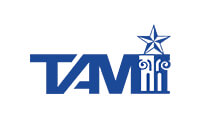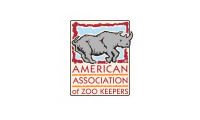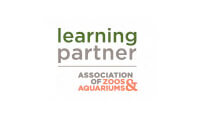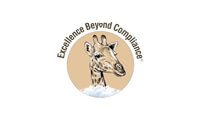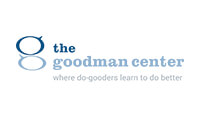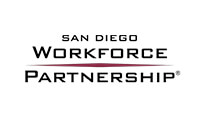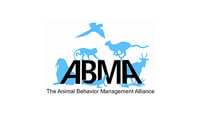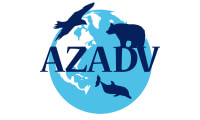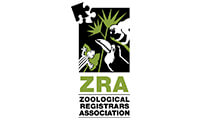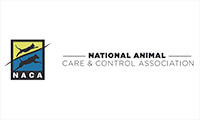Leadership Insights
What Does It Take to Be a Trusted Authority?
Six Strategies to Boost Your Influence
By Don Janssen, DVM
Authority of all kinds is under scrutiny these days, and for a good reason. We hear startling reports almost daily of people misusing their power and authority. Whom can you trust? Has trust become irrelevant? Rest assured, trusted authorities do still exist.
Trust is confidence. It is the assurance that you can rely on someone based on their character and abilities. Authorities have the power to influence others, which springs from their knowledge, experience, or position. Trusted authorities are authentic leaders or experts who do the right thing and act in our best interest. When a trusted authority leads, people willingly follow.
Trusted Authority: an Example
As a senior in veterinary school, I had a professor who was a remarkable example of a trusted authority. Dr. Murray Fowler was arguably the world's authority on zoo animal medicine. If anyone could claim to be the father of zoological medicine, it would have been him. He was the first to develop a veterinary school curriculum focused on training zoo and wildlife veterinarians. He wrote and edited the first book on the topic, Zoo and Wild Animal Medicine, now in its 10th edition. All that, however, was only part of what made him a great leader and a trusted authority.
I got to know Dr. Fowler on weekly group trips to the Sacramento Zoo. On the return from one of those trips, after we had spent a busy afternoon working with zoo animals, he told us we were going to stop at a small farm to see the owner about a horse. I could see no reason for this. It was a domestic horse, after all, not a zoo animal. Other veterinarians could have taken the call. We went there, nonetheless.
The horse had a sore on its lower leg that wasn't healing. All of us looked at the horse and its lesion with little interest—all of us except Dr. Fowler. He examined the horse and listened to the owner's concerns, using the situation as a teaching opportunity for those of us who would have paid better attention had it been a zebra.
As I watched, however, I was struck by a connection between the owner and my veterinary professor. Dr. Fowler led a conversation, using his gentle influence to help the owner understand what needed to be done and why. His approach showed his desire to help rather than to exert control over the owner. His influence was strong. The owner responded with understanding and a willingness to follow Dr. Fowler's recommendations.
I wanted to have work relationships like that! And that's when I realized why he brought us here. He wanted us to understand that relationships are as meaningful as our work. To him, it didn't matter where he was—a farm or a zoo. Dr. Fowler had all the abilities, but he was a trusted authority because of his interest in the well-being of others. As a result, he was influential in whatever setting he found himself.
Trusted Authorities: Characteristics and Contrasts
Trusted authorities, though rare, are easy to spot. They employ that rewarding combination of competence and character in their daily interactions. Their motivation is to benefit others instead of themselves. To bring about change, trusted authorities use their influence rather than trying to control people. We are attracted to—and want to work with—trusted authorities. On the other hand, we avoid those we do not trust. Without trust, communication fails, problems linger and compound, innovation halts, and threats and force become the norm. People suffer.
What Does It Take to Be a Trusted Authority?
- Be an expert. We must first have the skills and ability to do the job. Competence is fundamental and opens the door to trust. We may be trusted to perform well in one area but not another, based on our expertise.
- Be humble, and set your self-interests aside. Humility assures people that we will use our power not to hurt, but to help. Only with genuine humility can we keep our power under control and do what's right for others.
- Continually pay into your trust account. Our level of trust with another person may wax and wane, depending on circumstances. We can, however, grow the balance in our trust accounts with others by making and keeping commitments consistently over time. The more we invest, the more resilient our relationship will be when adverse events strike.
- Honor the truth, and be transparent. It's natural to trust those who are transparent, and do not hide or obscure the truth. But we are suspicious of those whom we sense are covering up. Being open and vulnerable is hard, and goes against the grain. Nevertheless, great leaders dare to be honest and transparent and do what's right for others even if, in the short term, it makes them look bad.
- Extend trust to others. This is a shortcut to gaining trust. We don't expect someone to trust us before we have earned it. When they do, we feel good about that person and are more likely to extend trust to them. Some risk is involved, but that is what makes this so powerful.
- Take responsibility. Leaders who blame others when problems arise are abdicating their responsibilities. Trustworthy leaders take responsibility quickly and completely, especially when things go wrong. Chuck Bieler, former director of the San Diego Zoo, said it best, in this quote from Heart of the Zoo: How San Diego Zoo Director Chuck Bieler Earned His Stripes, a new book by Kathi Diamant. "I like employees to run things and get involved," Chuck said, "but is the crew going to run the ship?" He answered his own question: "No, I am. The buck stops here, because I'm responsible for everything that happens." He is a great example of a leader who took his responsibility as an authority seriously, and whom we could trust to have our backs.
We need trusted authorities to counter the damage caused by overbearing leaders motivated by self-interest. Are you willing to be an authority who sets aside your own desires, grows your trust accounts, upholds the truth, trusts others, and is the one who takes responsibility? If you are, you have a demanding job ahead of you. But you will reap the powerful rewards of trust and influence, which you can use with joy for the good of all.
Please send comments or questions to don.janssen@gmail.com.
Don Janssen, DVM, is a veterinarian and retired corporate director of animal health for San Diego Zoo Wildlife Alliance. He is the author of Upside-Down Leadership: A Zoo Veterinarian's Journey to Becoming a Servant Leader. Find more information about the book and other articles by Don Janssen here.



